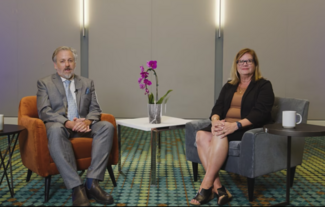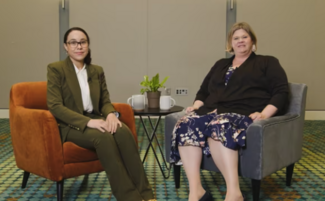Addressing Family System Issues in ADHD Treatment

How can clinicians effectively integrate family-based interventions into the treatment plans of patients with attention-deficit/hyperactivity disorder (ADHD)? In this insightful Q&A, Sarah Slabaugh, DO, elaborates on key points from her session at the 2025 Psych Congress Elevate, “Unraveling the Knots: Family Centered Strategies for Attention Deficit Disorder.” With a focus on dismantling shame-based family dynamics, integrating behavioral-based therapies, and leveraging collaborative care, Dr Slabaugh offers practical clinical insights for clinicians navigating family systems that may be undermining treatment progress in ADHD cases.
For more conference coverage and exclusive faculty insights, visit the Elevate newsroom.
Editors' note: This interview has been lightly edited for clarity.
Psych Congress Network: What are some early signs clinicians can look for that may indicate shame-based dynamics are undermining treatment progress in ADHD cases?
Sarah Slabaugh, DO: Clinicians can often identify early signs of shame-based dynamics during the initial assessment. Examples include the following:
- Unrealistic expectations that the child should always be in control or perfect,
- Difficulty tolerating mistakes and limited ability to repair relational ruptures,
- Parental tendencies to blame the child, withdraw emotionally, or avoid addressing negative feelings,
- Inconsistent or developmentally inappropriate expectations—either overly harsh or lacking structure,
- Contextual clues such as all-or-nothing thinking, personalization of failure, name-calling, and resistance to new perspectives, and
- These patterns can subtly undermine treatment progress if not addressed early.
PCN: Are there specific therapeutic modalities or tools you’ve found especially effective in dismantling shame within families of patients with ADHD?
Slabaugh: Behavior-based therapies remain among the most effective for addressing challenging behaviors in ADHD. Their principles also offer a useful lens for exploring when and why families may feel "stuck." The most powerful tools are often those already in use, applied with deeper, contextual understanding.
I’ve found that compassionate modeling during sessions—demonstrating consistency, flexibility, and creativity—helps parents internalize new approaches. Parent-only sessions can uncover the beliefs and experiences shaping their current parenting style. Using psychoeducation to contextualize both child and parent behaviors helps reduce shame by normalizing their struggles.
Given ADHD’s high heritability, it’s also crucial to explore the parents’ own childhood experiences with symptoms, conflict, and emotional expression. This often reveals that what’s arising with their child is not just a present-moment challenge, but part of a broader pattern of generational trauma.
PCN: During brief medication management visits for ADHD treatment, what are some ways psychiatric providers can integrate family system values and relationship coaching into their conversations with patients?
Slabaugh: Even in brief medication management visits, psychiatric providers can weave in family system values and relationship coaching. By drawing on principles of behavior-based therapy and listening with a “third ear,” providers can reframe the conversation, shifting focus from the child as the problem to patterns within the family system.
Using psychoeducation, clinicians can clarify which behaviors may improve with medication and which require therapeutic support, helping set realistic expectations. A common misconception is that medication and therapy will "fix" the child, when in fact, the real change often involves caregivers adjusting their responses to behavior.
Providers can offer small, practical assignments for the family, such as practicing a specific communication strategy, and follow up in future visits. This reinforces consistency and flexibility, and models the kind of relational change that leads to warmer, more connected family dynamics.
PCN: How can psychiatric providers collaborate with therapists, educators, and other professionals in the patient’s health care team to ensure a cohesive approach when addressing family system issues in ADHD treatment?
Slabaugh: Collaboration among psychiatric providers, therapists, educators, and other professionals is essential for effective ADHD treatment. The most critical step is ensuring open, ongoing communication between all members of the care team.
In a fragmented system, important details can easily be lost. Regular updates, shared goals, and mutual feedback help create consistency and clarity for families. When everyone is aligned—contextualizing behaviors and reinforcing common treatment objectives—families experience a more cohesive and effective path forward.
Sarah Slabough, DO, is a board-certified child and adult psychiatrist and an assistant professor of psychiatry at UMass Chan Medical School–Baystate. She provides consultation in interventional psychiatry, integrated behavioral health, and psychiatric care in pediatric and emergency settings. She is also the co-owner of HS Psychiatry, specializing in ketamine-assisted treatments for psychiatric disorders. Dr Slabaugh's clinical interests focus on interventional psychiatry for transitional-aged youth and treatment-resistant conditions. She is passionate about family-based intervention models and exploring emerging treatments—such as ketamine, psilocybin, and MDMA—and their risks and benefits in the young adult population.
© 2025 HMP Global. All Rights Reserved.
Any views and opinions expressed above are those of the author(s) and do not necessarily reflect the views, policy, or position of the Psych Congress Network or HMP Global, their employees, and affiliates.



















